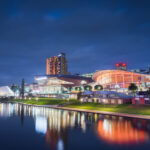Teach English in Brazil
Teaching English in Brazil is an incredibly rewarding and enriching experience that offers both personal and professional growth. Brazil’s vibrant culture, warm-hearted people, and stunning landscapes provide a unique backdrop for your teaching journey. By sharing your language skills, you’ll not only help individuals communicate globally but also open doors of opportunity for them.
The demand for English education in Brazil is ever-growing, and your presence as a teacher can make a lasting impact on students’ lives. Embrace the chance to immerse yourself in Brazilian traditions, savor mouthwatering cuisine, and explore the breathtaking beauty of this diverse country while making a positive contribution to its education system. Teaching English in Brazil is a life-changing adventure that will broaden your horizons and leave you with memories to cherish forever. Don’t miss the opportunity to be part of this incredible experience!
Popular Cities for ESL Teachers
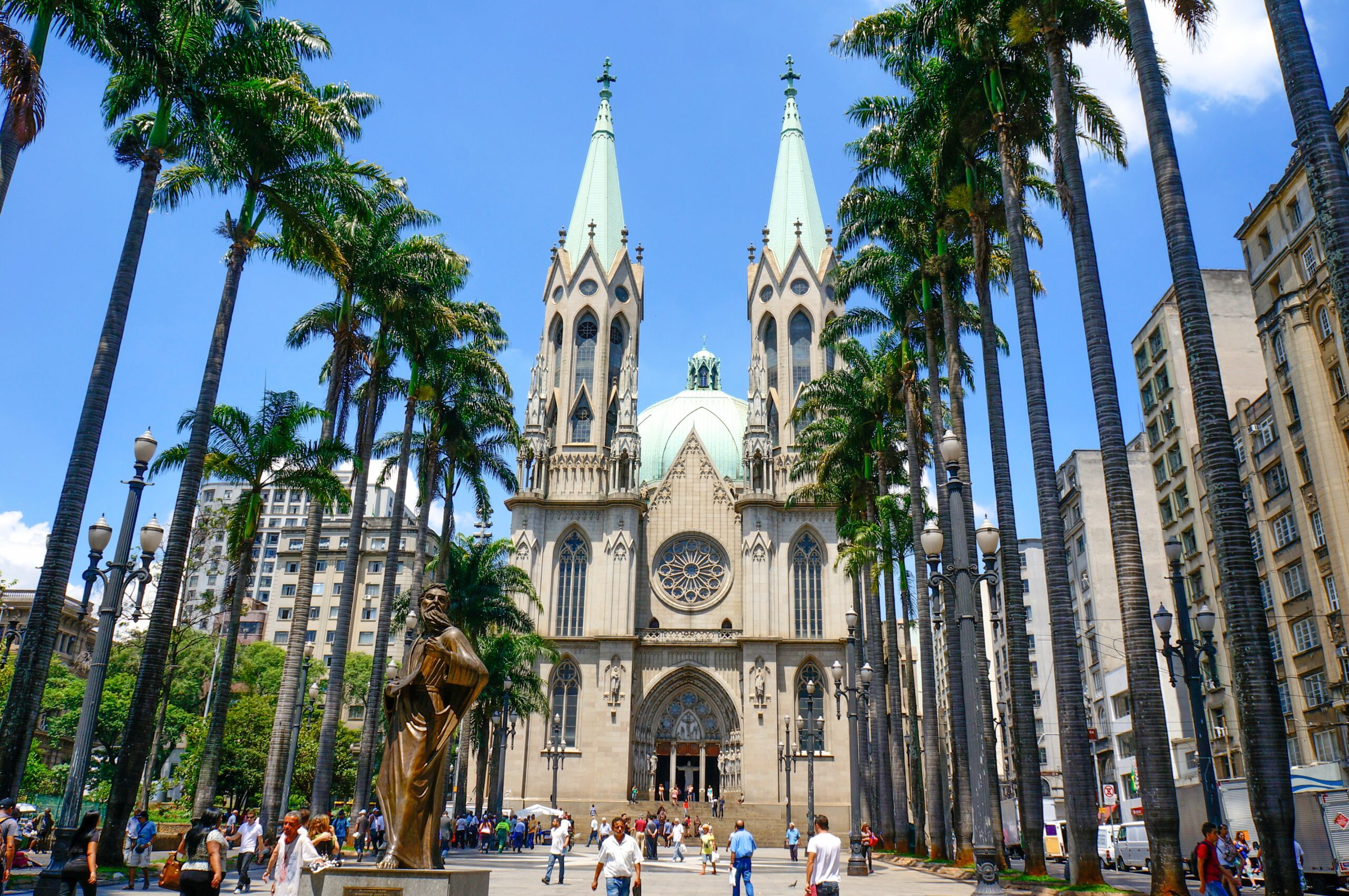
Cathedral in the main square of Sao Paulo, Brazil
São Paulo
São Paulo is the largest city in Brazil and one of the largest in the world. It’s a bustling metropolis known for its diverse culture, vibrant arts scene, and a thriving business hub. The city offers a mix of modern skyscrapers, historic neighborhoods, and a wide range of dining, shopping, and entertainment options.
Museu de Arte de São Paulo (MASP): Visit this iconic museum, known for its distinctive modernist architecture and an impressive collection of European and Brazilian art, including works by Picasso, Van Gogh, and Portinari.
Ibirapuera Park: Enjoy the lush greenery and serene atmosphere of São Paulo’s central park. It’s an excellent place for picnics, outdoor activities, and cultural events. Don’t miss the Oca and Afro Brazil Museum within the park.
Paulista Avenue: Stroll down Avenida Paulista, São Paulo’s bustling financial and cultural center. Explore its shopping malls, art galleries, and a variety of dining options. The avenue often hosts street fairs and cultural events.
Mercado Municipal (Municipal Market): Sample Brazilian cuisine and tropical fruits at this bustling food market. Try the famous mortadella sandwich or indulge in fresh fruit juices and pastries.
São Paulo Cathedral (Catedral da Sé): Marvel at the grandeur of this neo-Gothic cathedral, which is one of the largest in the world. Its impressive architecture and beautiful stained glass windows make it a must-see landmark.
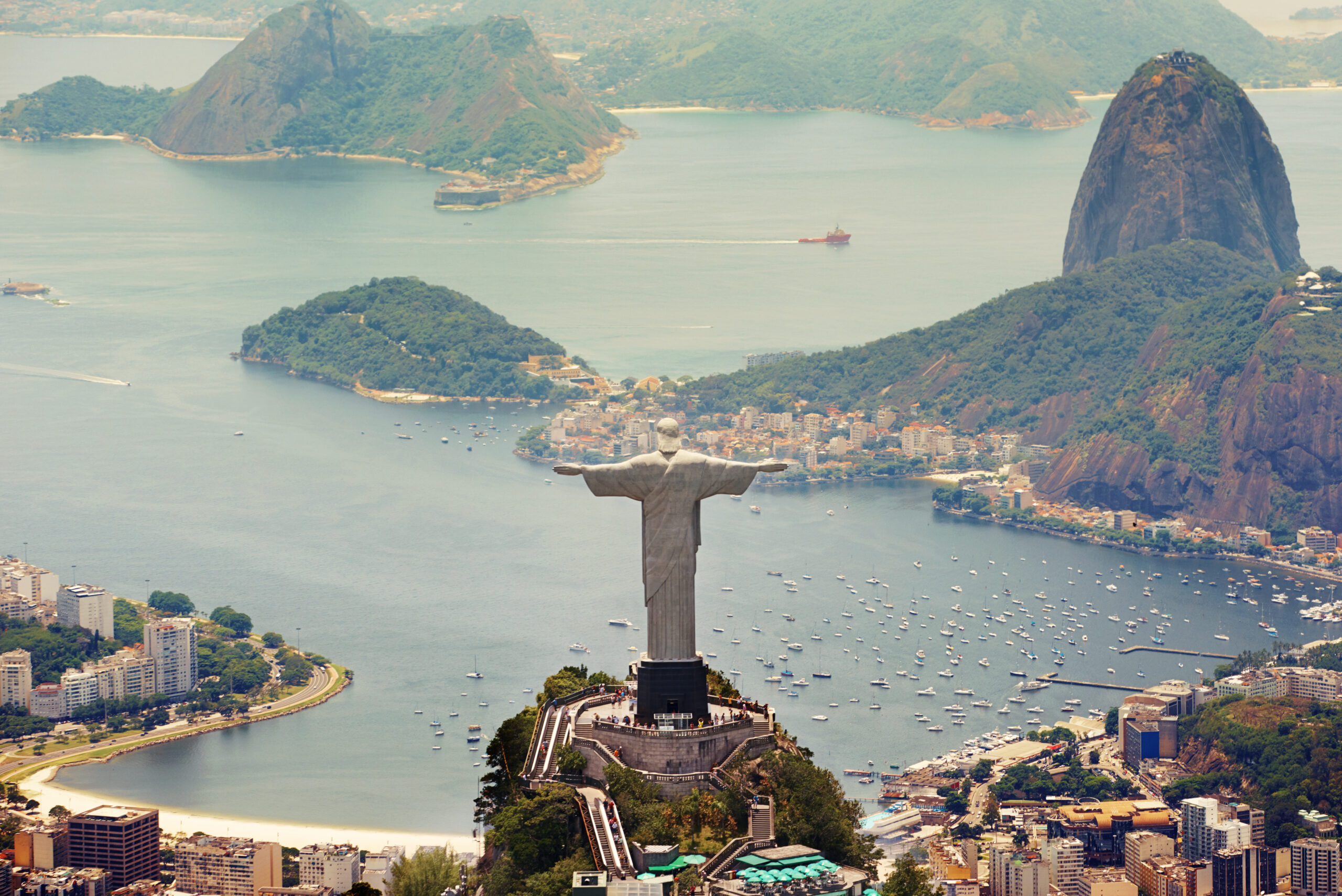
Christ the Redeemer monument in Rio de Janeiro, Brazil
Rio de Janeiro
Rio de Janeiro is famous for its stunning natural beauty, including iconic landmarks like the Christ the Redeemer statue and the Sugarloaf Mountain. It’s also known for its lively Carnival celebrations, beautiful beaches like Copacabana and Ipanema, and a vibrant nightlife.
Christ the Redeemer: Visit the iconic Christ the Redeemer statue atop Corcovado Mountain. Enjoy breathtaking panoramic views of the city and the surrounding coastline while experiencing one of the New Seven Wonders of the World.
Copacabana and Ipanema Beaches: Relax on the world-famous beaches of Copacabana and Ipanema. Sunbathe, swim, and people-watch while soaking in the vibrant beach culture. These beaches are also great for beach volleyball and water sports.
Sugarloaf Mountain (Pão de Açúcar): Take a cable car ride to the summit of Sugarloaf Mountain for stunning views of Rio’s landscape, including its beaches, forests, and the city itself. It’s particularly beautiful at sunset.
Tijuca National Park: Explore the lush Tijuca National Park, the largest urban forest in the world. Hike or take guided tours to discover waterfalls, wildlife, and scenic trails, including the hike to the Cascatinha Waterfall.
Samba and Carnival: Immerse yourself in Rio’s vibrant culture by experiencing its samba music and dance. Attend a samba show or, if visiting during February or March, join the world-famous Carnival festivities, featuring elaborate parades and street parties.
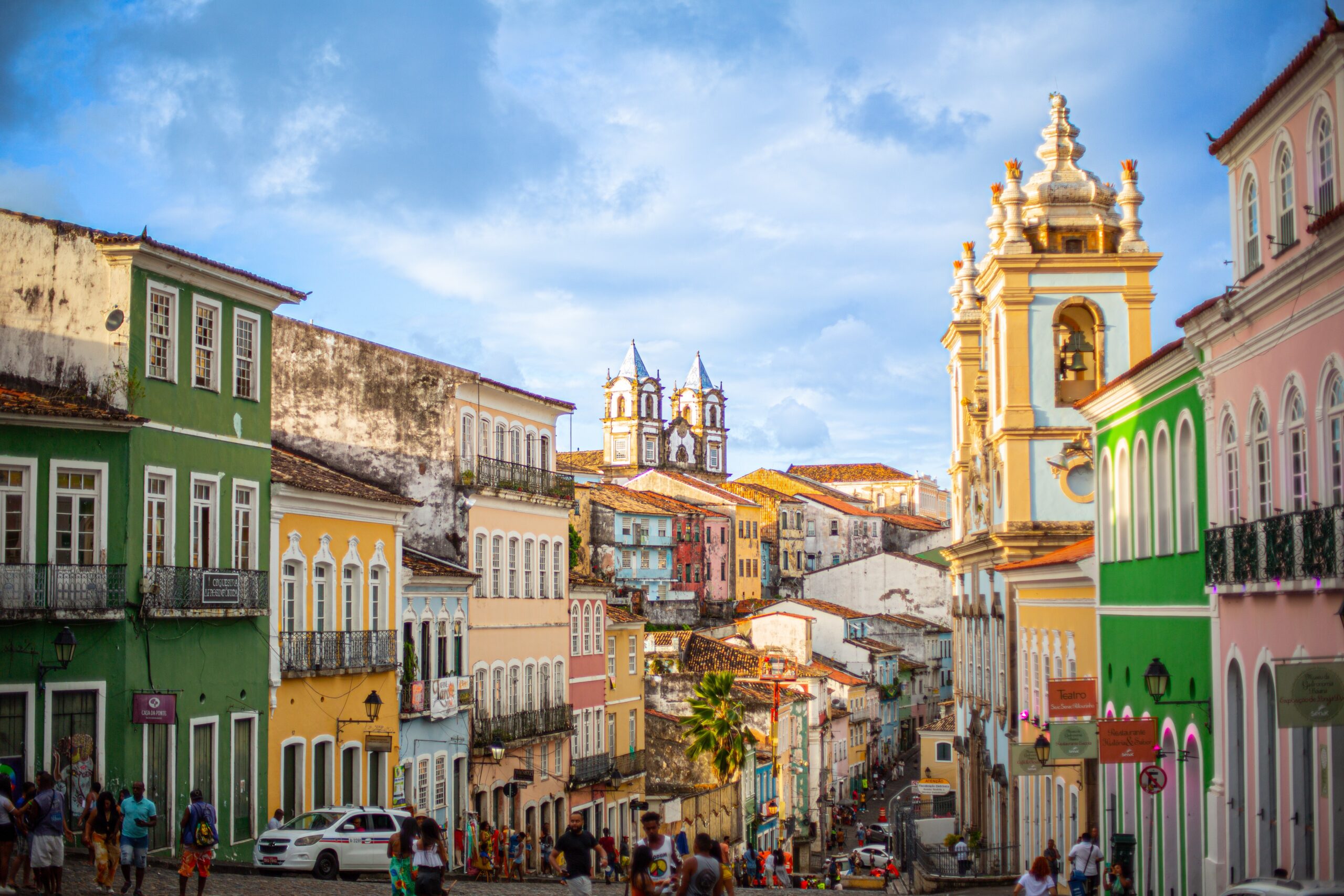
Pelourinho, Salvador. (Photo by Leonardo Dourado from Pexels)
Salvador
Salvador, located in the state of Bahia, is known for its rich Afro-Brazilian culture, historic architecture, and vibrant music scene. The city is famous for its Carnival festivities, which are considered some of the best in Brazil. Salvador’s historic center, known as Pelourinho, is a UNESCO World Heritage Site and a major tourist attraction.
Pelourinho (Historic Center): Explore the colorful and historic district of Pelourinho, a UNESCO World Heritage Site. Wander through cobblestone streets lined with beautifully preserved colonial buildings, churches, and museums. Don’t miss the São Francisco Church and Convent, known for its intricate Baroque architecture.
Elevador Lacerda: Ride the iconic Elevador Lacerda, an Art Deco elevator that connects the upper and lower parts of Salvador. From the top, you can enjoy panoramic views of the city’s bay, Mercado Modelo, and the All Saints Bay.
Acarajé and Bahian Cuisine: Savor the local cuisine, particularly the Bahian dish acarajé, a deep-fried ball of black-eyed pea dough filled with shrimp and traditional sauces. Explore local restaurants for other delicious dishes like moqueca (seafood stew) and vatapá (a rich sauce).
Capoeira and Afro-Brazilian Culture: Immerse yourself in the vibrant Afro-Brazilian culture of Salvador. Watch or even participate in capoeira, a traditional Brazilian martial art that combines dance and music. Visit cultural centers and museums to learn about the history of the city’s African heritage.
Carnival and Festivals: If you visit during Carnival season, experience one of the largest and most festive celebrations in Brazil. Salvador’s Carnival is known for its unique trio elétrico music trucks and lively street parties. Throughout the year, the city hosts various festivals, including Festa de Yemanjá and Lavagem do Bonfim, which showcase the rich religious and cultural traditions of Bahia.
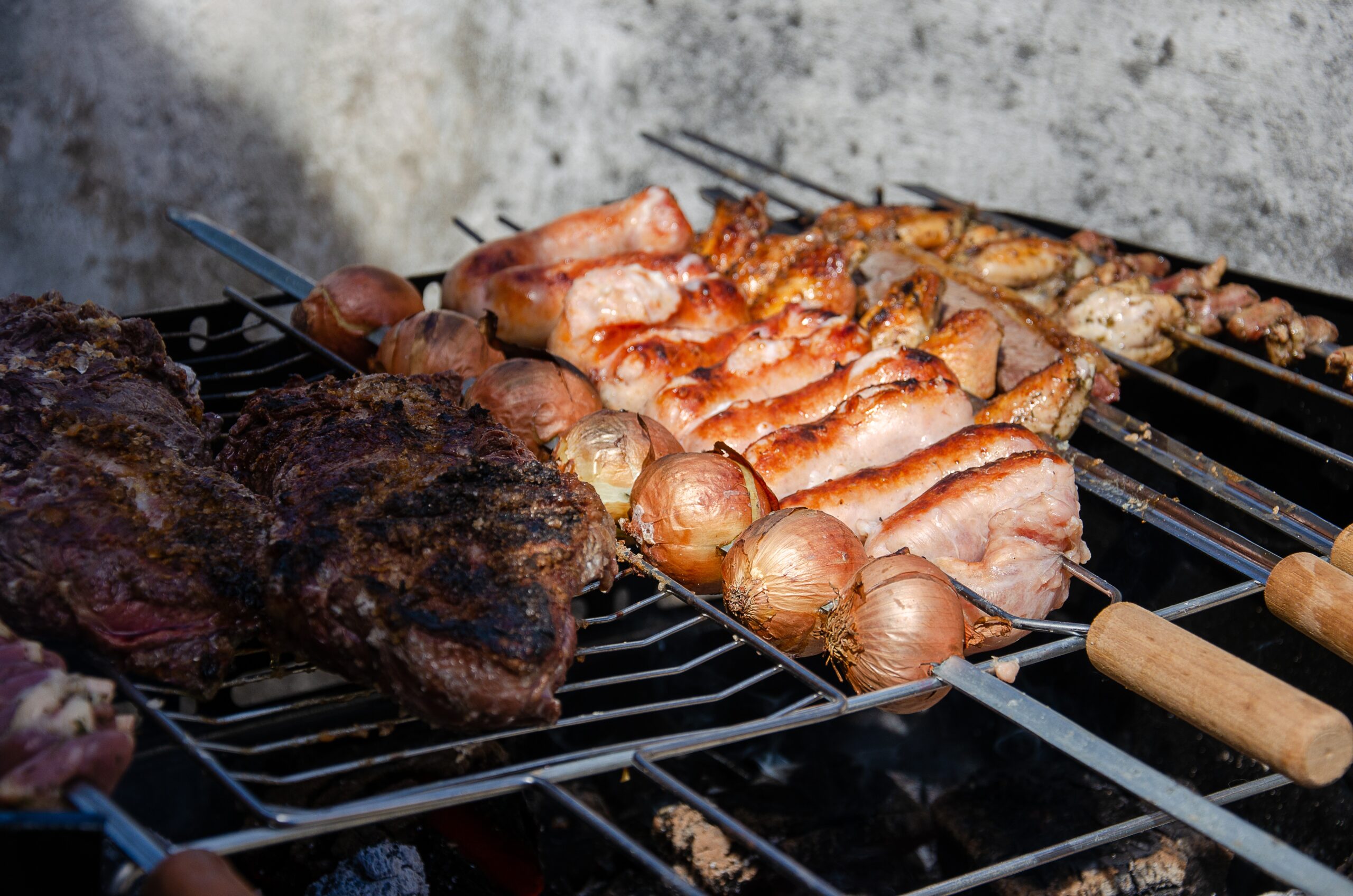
Brazillian Barbecue
Food
Brazilian cuisine is a diverse and flavorful culinary tapestry that reflects the country’s rich cultural heritage and natural abundance. Known for its bold and robust flavors, Brazilian food encompasses a wide range of dishes influenced by Indigenous, African, European, and Asian traditions.
Rice and Beans: This classic Brazilian staple is served with nearly every meal and provides a hearty and nutritious base.
Churrasco (Barbecue): Brazilian barbecue, known as churrasco, offers a mouthwatering selection of slow-cooked meats, grilled to perfection over open flames.
Feijoada: A flavorful black bean stew, traditionally prepared with various cuts of pork, creating a rich and savory dish often served on Saturdays.
Acarajé: A popular street food in Bahia, acarajé is a deep-fried ball of black-eyed pea dough filled with shrimp and traditional sauces.
Coxinha and Pão de Queijo: Coxinha are deep-fried chicken dumplings, while pão de queijo are delightful cheese bread rolls, both beloved snacks in Brazil.

Football Fans in Brazil
Culture
Brazilians are renowned for their friendliness and welcoming nature, making visitors feel at home in their vibrant and diverse country. This genuine hospitality extends to strangers and is a fundamental aspect of Brazilian culture, fostering connections and enriching the experiences of those who visit or interact with the Brazilian people. Brazilian culture is a vibrant and diverse tapestry that reflects the country’s rich history, a fusion of Indigenous, African, Portuguese, and immigrant influences. It is a culture known for its warmth, celebration, and passion for life.
Football (Soccer): Football is more than just a sport in Brazil; it’s a national obsession. The country has a rich footballing history and has produced legendary players like Pelé and Zico. Watching a football match in Brazil is an exhilarating experience, and stadiums come alive with passionate fans.
Carnival: Carnival is one of the most iconic and globally recognized cultural expressions of Brazil. Held annually, this massive festival showcases extravagant parades, colorful costumes, samba music, and energetic street parties. It’s a time for Brazilians to celebrate their culture and let loose in an explosion of joy and creativity.
Music and Dance: Music pulses through the heart of Brazilian culture. Samba, bossa nova, forró, and axé are just a few of the music genres that have their roots in Brazil. The country has produced legendary musicians like Antonio Carlos Jobim and João Gilberto. Brazilians love to dance, and you’ll find rhythmic moves in every corner, from the samba halls of Rio to the forró clubs of the Northeast.
Cuisine: Brazilian cuisine is a fusion of flavors and ingredients from different regions. Rice and beans are dietary staples, often accompanied by dishes like feijoada, a rich stew of black beans and pork. Street food, such as acarajé and pastéis, is popular, and the country is known for its churrasco (barbecue).
Festivals: Beyond Carnival, Brazil hosts numerous regional festivals that celebrate local traditions and folklore. Festas Juninas, celebrated in June, involve dancing, colorful costumes, and delicious treats like canjica and pé de moleque.
Qualifications
An internationally recognised TESOL Certificate will be required to teach English in Brazil.
Visa
To work as an English teacher in Brazil, you will need to have a valid work visa. Most schools will help you obtain the correct visa and guide you through the process with visa assistance. Some students will originally enter on a 3-month holiday visa. The process of obtaining a work visa can vary depending on your country of origin, but generally, you will need to provide proof of your qualifications, a valid passport, and a criminal background check. It is important to check the specific requirements for each country and your language school for up-to-date advice.
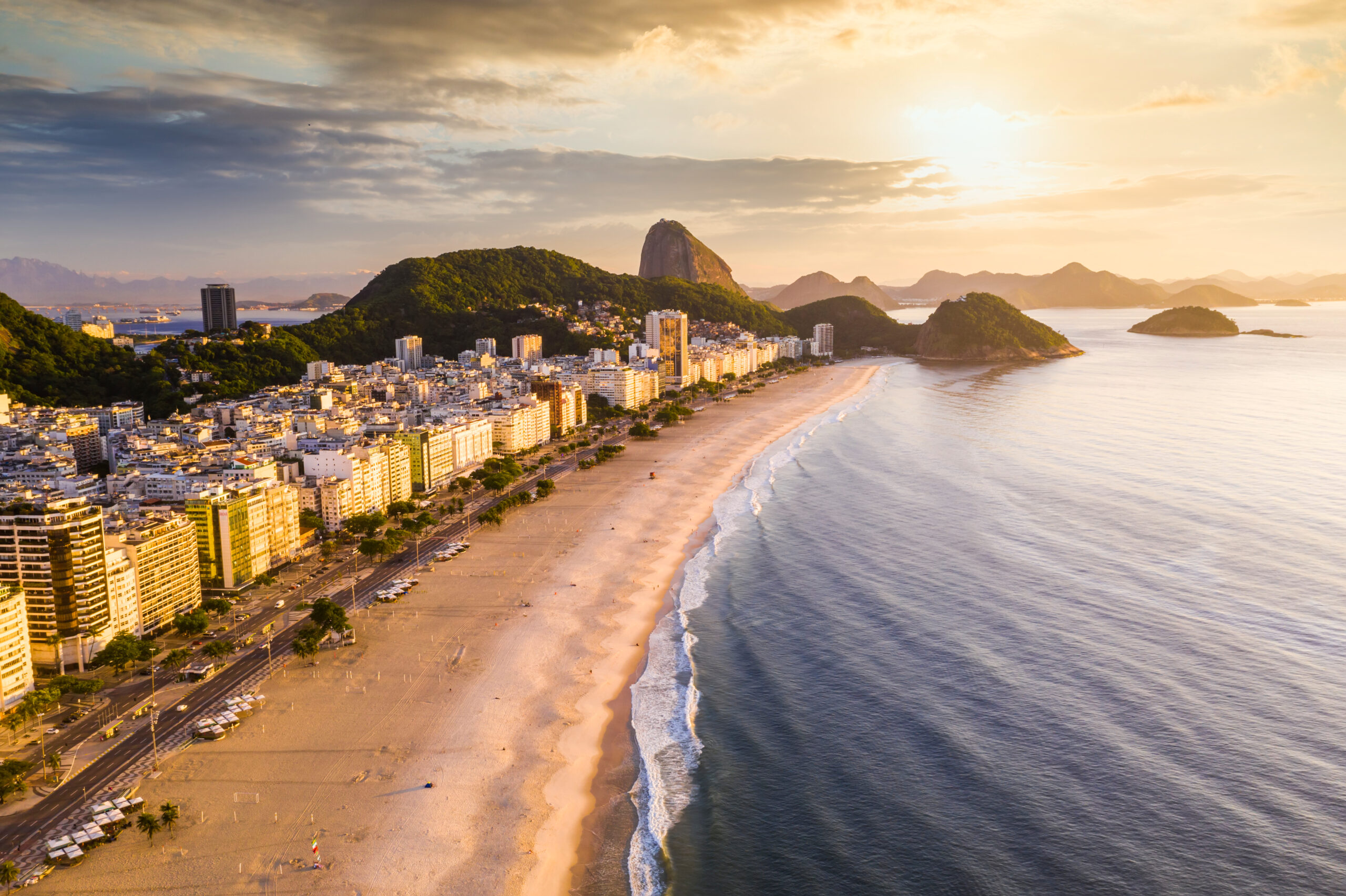
Copacabana Beach at Sunset
GOAL!
Teaching English in Brazil is a transformative and enriching experience that offers both personal and professional growth. The warmth and hospitality of the Brazilian people, combined with the country’s rich cultural tapestry and breathtaking natural beauty, create an inviting environment for educators. Brazil’s growing demand for English language education presents exciting opportunities to make a lasting impact on students’ lives while immersing yourself in its diverse culture and traditions. Embrace the chance to explore iconic cities, savor delicious cuisine, and celebrate vibrant festivals, all while contributing to the development of language skills that open doors to global opportunities. Teaching English in Brazil is a rewarding journey that broadens horizons, creates lifelong memories, and fosters a deep appreciation for this remarkable country.























